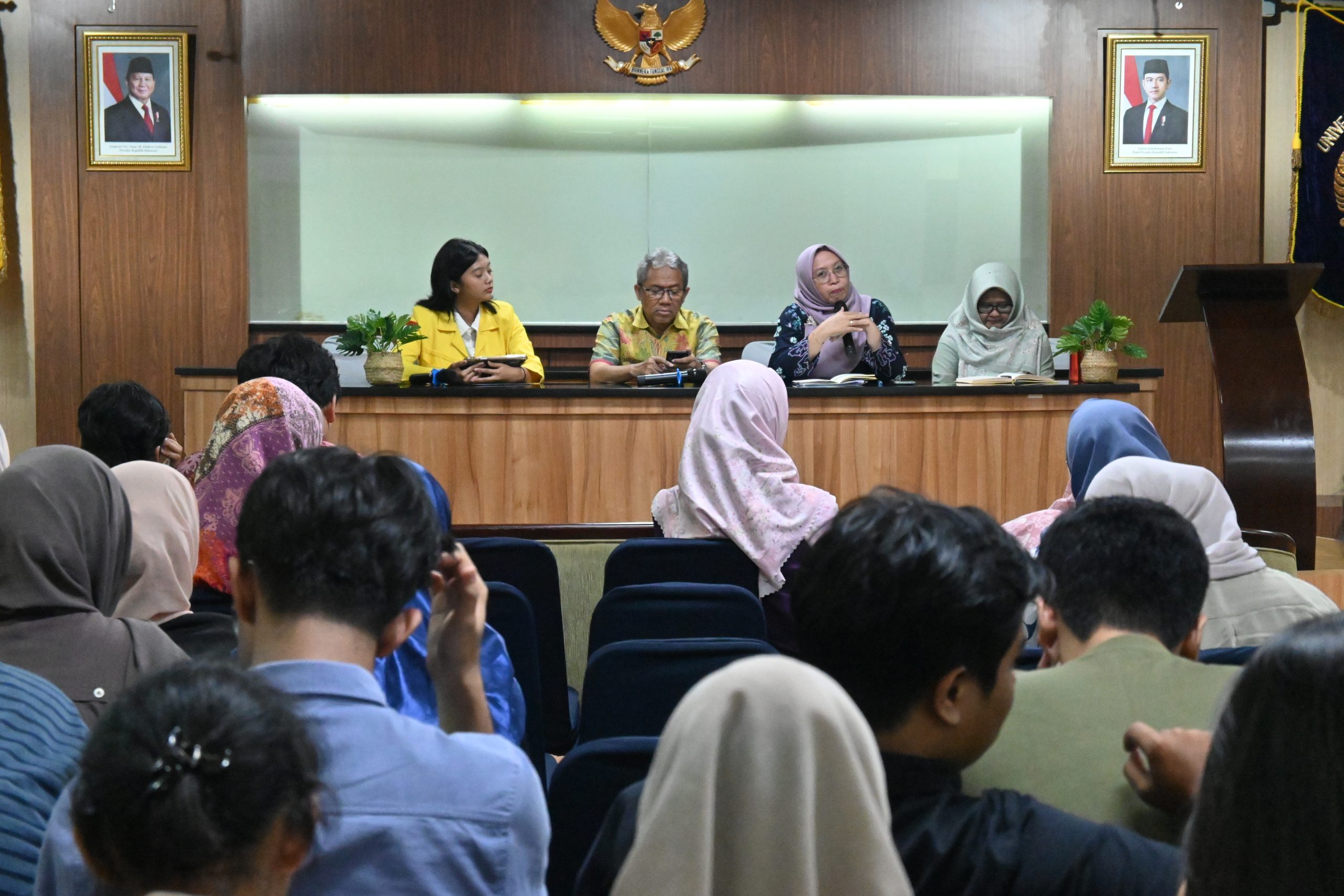The Faculty of Public Health (FPH) Universitas Indonesia (UI) held an interactive dialogue event titled DREAM, “Dialogue for Reflection Through Aspiration and Motivation,” in the Doctoral Promotion Room, Building G of FPH UI. The event was attended by the FPH deanery and students. Log-In is an annual program initiated by the Department of Student Advocacy and Welfare (Adkesma), Student Executive Board of FPH UI. It serves as a forum for connection and dialogue between students and the faculty leadership, as well as a platform for channeling student aspirations, especially in three key areas: academics, facilities, and finance.
In line with this mission, Alif Musyaffa, Vice President of the Student Executive Board of FPH UI 2025, emphasized that Log-In is not merely a space for criticism, but a collaborative arena to build a better FPH UI. “We hope that the aspirations we’ve collected can be directly presented to the deanery. We are here not to tear down, but to improve and grow together,” said Alif.
This spirit of collaboration was warmly welcomed by the Dean of FPH UI, Prof. Dr. Mondastri Korib Sudaryo, M.S., D.Sc. Prof. Mondastri appreciated the student initiative and underlined the importance of this event as a moment to strengthen academic relations. “FPH UI is not just a stopover; it is our home where we grow together—not only students, but the entire academic community. We all interact in our respective roles, and each role is noble,” he said. Prof. Mondastri also stressed the importance of feedback in the learning process, noting that learning is never perfect, and input is vital for the collective progress of the FPH UI community.
Over the past year, several improvements were made by FPH UI based on the outcomes of Log-In 2024, including the renovation of restrooms and the “Kandang Macan” sports area, establishment of a student lounge, reactivation of the Health Canteen, formation of the Student Counseling Body, and revitalization of computers in the Laboratory in Building A.
In the 2025 Log-In forum, 462 students from undergraduate to postgraduate levels submitted their aspirations through questionnaires distributed by Adkesma. Additional input was gathered from regular meetings with department and student organization representatives.
Recommendations included requests for clearer explanations about short semester course systems, more detailed timelines for outstanding student selection at UI level, and opening of online learning classes (PJJ) for postgraduate programs. On financial matters, students expressed the need for more comprehensive information about the tuition fee scheme for final-year students, reimbursement systems for field practice (PBL), and increased funding for competitive student activities. Facility-related input highlighted extended restroom operating hours, emergency kits, better water pressure, tissue availability, and improved mosque cleanliness.
These suggestions were positively received. “All of these contributions are valuable and serve as material for our reviews and improvements going forward,” said Prof. Mondastri. Dr. Ir. Asih Setiarini, M.Sc., Vice Dean for Education, Research, and Student Affairs, also acknowledged the feedback. She added that FPH UI is the only faculty at UI recognized by the Ministry of State Apparatus and Bureaucratic Reform (PAN-RB) for its commitment to infrastructure accessibility for vulnerable groups. Featured facilities include parking for persons with disabilities and women, priority seating, accessible toilets, sign language services at the Faculty Service Unit, braille service books, a playground, and a health room equipped with a stretcher and nutrition consultation services. “All the feedback is taken seriously to close existing gaps and foster a safer and more comfortable campus environment,” Dr. Asih stated.
One strategic issue raised in the forum was the Institutional Development Fee (IPI), brought up by Alif Musyaffa. This was addressed by Dr. Milla Herdayati, S.K.M., M.Si., Vice Dean for Resources, Ventures, and General Administration. She clarified that the IPI and Single Tuition Fee (UKT) are regulated by the Ministry of Education and Culture. The IPI applies to students admitted through independent and international tracks, capped at four times the UKT per semester, according to ministry regulations. “However, for the SIMAK pathway, FPH UI implements a fair IPI scheme, taking into account the socio-economic conditions of students. This is managed through a centralized UI system and verified by the faculty,” she explained.
All feedback gathered in the Log-In forum will not only be discussed in real time but also compiled into a written press release by the Student Executive Board and submitted to the deanery as formal documentation and a reference for future follow-up. To strengthen aspiration channels, in addition to Log-In, FPH UI also provides an e-complaint platform monitored quarterly to follow up on both academic and non-academic feedback.
Attendees of the Log-In forum included FPH UI Student Affairs Manager Dien Anshari, S.Sos., M.Si., Ph.D.; Faculty Secretary Nelasari, S.K.M., M.K.M.; Undergraduate Environmental Health Program Secretary Dr. Al Asyary, S.K.M., M.P.H.; and Head of the Department of Nutrition Dr. Fathimah Sulistyowati Sigit, M.Res., Ph.D.
This interactive dialogue between students and the faculty leadership is not merely about being heard or speaking up—it is about crafting tangible steps toward building a more inclusive, adaptive, and sustainable academic environment for the entire FPH UI academic community. (DFD)

